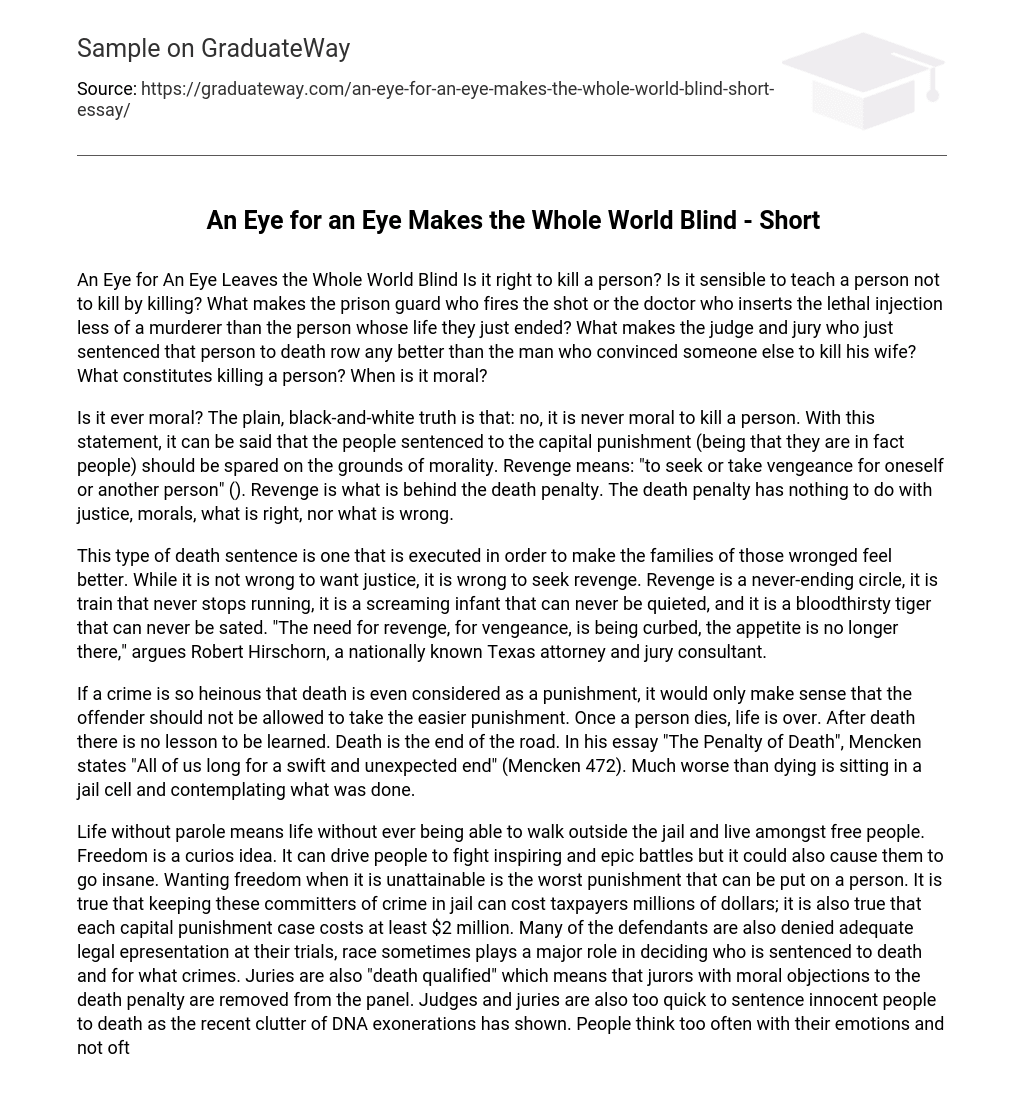An Eye for An Eye Leaves the Whole World Blind.
Is it right to kill a person? Is it sensible to teach someone not to kill by killing them? What makes the prison guard who fires the shot or the doctor who inserts the lethal injection less of a murderer than the person whose life they just ended? What makes the judge and jury who just sentenced that person to death row any better than the man who convinced someone else to kill his wife? When is it moral to take another’s life?
Is it ever moral to kill a person? The plain, black-and-white truth is no, it is never moral. Therefore, people sentenced to capital punishment should be spared on the grounds of morality since they are still human beings. Revenge means to seek or take vengeance for oneself or another person.” The death penalty is driven by revenge and has nothing to do with justice, morals, what is right, nor what is wrong.
This type of death sentence is executed to provide closure for the families of those wronged. While seeking justice is understandable, seeking revenge is not. Revenge perpetuates a never-ending cycle that cannot be stopped, like a train that never stops running or a screaming infant that can never be quieted. It is comparable to a bloodthirsty tiger that can never be sated.
Robert Hirschorn, a nationally known Texas attorney and jury consultant, argues that the need for revenge has diminished and the appetite for it no longer exists.
If a crime is so heinous that death is even considered as a punishment, it would only make sense that the offender should not be allowed to take the easier punishment. Once a person dies, life is over. After death, there are no lessons to be learned. Death marks the end of the road. In his essay “The Penalty of Death,” Mencken states, “All of us long for a swift and unexpected end” (Mencken 472). Sitting in jail and contemplating what was done is much worse than dying.
Life without parole means never being able to walk outside of jail and live among free people. Freedom is a curious idea; it can drive people to fight inspiring and epic battles, but it could also cause them to go insane. Wanting freedom when it is unattainable is the worst punishment that can be put on a person.
It is true that keeping these criminals in jail can cost taxpayers millions of dollars. However, each capital punishment case costs at least $2 million, and many defendants are denied adequate legal representation at their trials. Race sometimes plays a major role in deciding who is sentenced to death and for what crimes. Juries are also “death qualified,” which means that jurors with moral objections to the death penalty are removed from the panel.
Judges and juries are too quick to sentence innocent people to death as recent DNA exonerations have shown. People think too often with their emotions rather than logic and reason; how can an emotional person be trusted to decide on the life of another?





